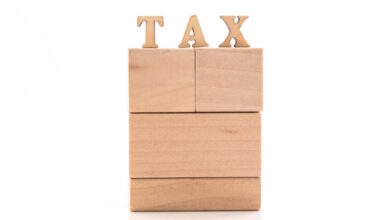Canadian right-wing extremism increased online during the pandemic

Online activity by right-wing extremists in Canada rose last year during the pandemic, despite efforts by governments and social media companies to curb extremism and hate speech, according to a new report.
Proud Boys Canada may have disbanded ‘in name only,’ researchers warn
The report also found that right-wing extremists in Canada are being influenced by their increasingly violent counterparts in the U.S.
“This raises the concern that an emboldened and increasingly violent extreme right in the U.S. could help to inspire similar activity in Canada, as Canadian right-wing extremists look to their U.S. counterparts for inspiration,” wrote the authors of the new report from the U.K.-based Institute for Strategic Dialogue, set to be made public later this week.
That extremism could rise as lockdown restrictions are eased, the report warns.
“Given the possibility that the pandemic has introduced new audiences to extreme right-wing ideology,” says the report, “it is possible that when lockdowns are lifted, this may correlate to rates of extreme right activity that are higher than the pre-lockdown level.”
A ‘febrile environment’
The report charted an increase in extreme right-wing activity in 2020 compared to what the Institute for Strategic Dialogue found when it first looked at the problem in 2019.
“The pandemic has … created a febrile environment for radicalization, by ensuring that millions of people have spent more time online,” the authors wrote. “In an environment of heightened anxiety, the situation has been an easy one for extremists to capitalize on.
“As a result of the pandemic, extremist conspiracy theories have flourished, and minority communities — in particular Asians — have been subject to increased hate crimes and harassment.”
Mackenzie Hart, one of the authors of the report, said governments and social media companies should take the report’s findings seriously.
“We should be concerned with what’s spreading online,” said Hart. “It’s easy to just have a disconnect between online and offline spaces but we’ve seen that worldwide … instances of violence motivated by right-wing extremism have risen 250 per cent.”

The report says that government efforts to attack the problem have seen limited success to date.
In February, a month after the attack on the U.S. Capitol, Public Safety Minister Bill Blair announced that a number of “ideologically motivated violent extremist groups” — including the Proud Boys — were being added to Canada’s list of terrorist organizations. The researchers found, however, that the group was still operating openly online.
“We identified two Telegram channels hosting supporters and members of the Canadian Proud Boys which at the time of writing were still active despite the group’s designation as a terrorist entity in February 2021,” says the report.
Overall, the researchers identified 2,467 right-wing extremist accounts which produced 3.2 million pieces of content over 2020. While those extremist accounts made up a small share of all Canadian social media accounts, they were able to generate 44 million reactions.
Cross-border connections
Researchers also found ties between Canadian right-wing extremists and those in other countries.
Some of the Canadian accounts viewed by the researchers last year posted hateful racial slurs. Others expressed anger at particular people or groups. Prime Minister Justin Trudeau and the government’s COVID restrictions were frequent targets.
Some accounts actively promoted pandemic misinformation and conspiracy theories.
The researchers said some of the accounts they reviewed in 2019 had been shut down by companies like Facebook — but many of those accounts just popped up again under different names. The result, says the report, was just as many extremist accounts as there were the year before.
Other social media sites, like Telegram and 4chan, make little or no effort to moderate what is said on their platforms, says the report. The report describes 4chan as “a hub for extremist activity” and says hate speech has spiked on the platform in recent years.
“This is likely linked to the normalization of hateful discourse on the platform, which has resulted in the growth of a community where hostile speech targeting minority communities is considered standard, everyday activity,” says the report.
‘Neo-Nazi imagery’
On Telegram, researchers identified 17 groups focused on Canadian affairs — including seven channels hosting white supremacist communities, seven hosting ethno-nationalist communities and one hosting an anti-Muslim community.
Researchers also found Canadian channels on Telegram with “large volumes of content containing neo-Nazi imagery” and one associated with “accelerationism” — which the report describes as the belief “that societal collapse should be hastened through violence to allow a white ethnostate to be built.”
“This included memes promoting the need to prepare for societal collapse, but also instructional content on survivalism, guerilla tactics including surveillance and ambushes, guides on resisting interrogation and designs for 3D printed firearms,” says the report.
Gab was also a popular platform for white supremacists and ethnonationalists, the researchers found.
While YouTube has removed some accounts for violating its terms of service, researchers found two of five that were removed by YouTube migrated to BitChute, an alternative video hosting platform. The Proud Boys frequently posted to their BitChute channel throughout 2020.








Redes Sociais - Comentários